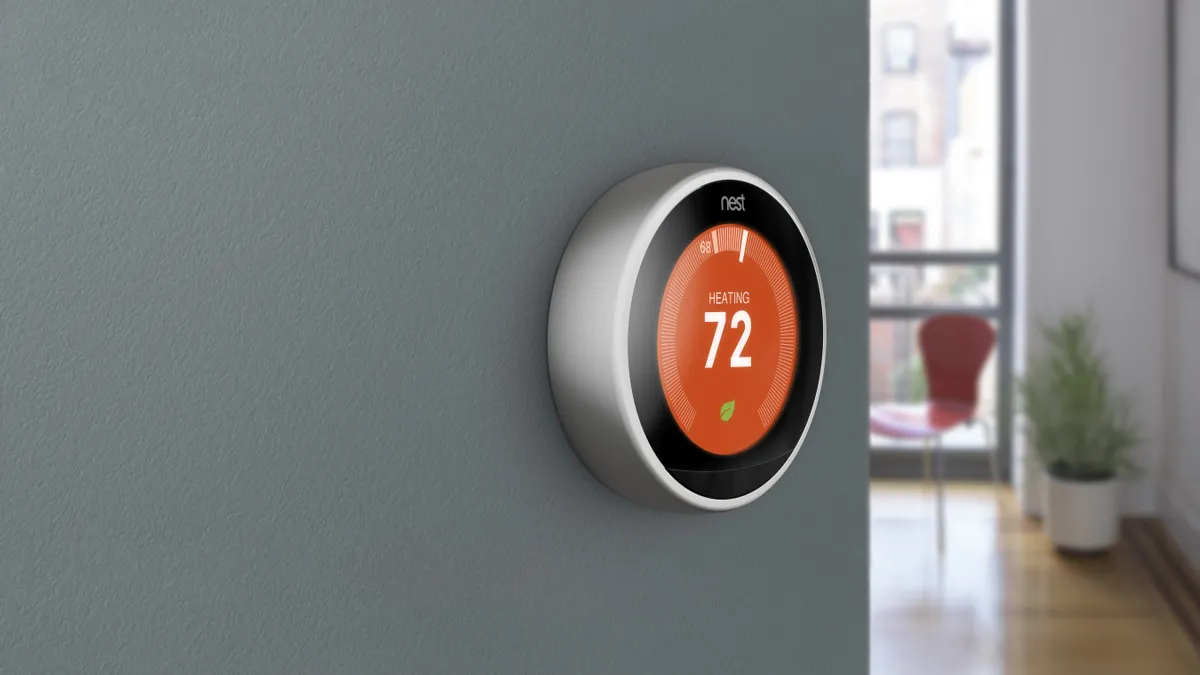Dive Brief:
- Nest Labs has revealed the third generation of its "Learning Thermostat," but it is unclear if the new suite of features will help customers find additional bill savings over previous versions of the device.
- The thermostat includes a new design and a feature alerting customers to possible problems with their heating and forced air furncaes, based on shutoff pattterns.
- The Google-owned company is also bolstering its distribution channels and is working with more than 40 energy and enterprise partners on offers and rebates for Nest products.
Dive Insight:
Nest Lab has unveiled the newest iteration of its smart thermostat, but as Greentech Media points out the company now faces pressure from competitors offering their own in-home displays and devices. And the market is growing — by the end of the year, most thermostat sales will be "smart" devices.
“The Nest Learning Thermostat has been proven by third-party researchers to save people, on average, about 10 to 12 percent on their heating bills and about 15 percent on their cooling bills,” Maxime Veron, head of hardware product marketing for Nest, said in a statement.
In all, Nest thermostats have helped save approximately four billion KWh, Veron said. The newest generation of the device will not only be available at 7,000 retail locations and from 25,000 Nest Pro installers, but energy companies Nest has partnered with: Southern Company, Direct Energy, SunEdison, Infinite Energy, Reliant, and ADT.
The new device has a slimmer designed and a high-resolution screen that’s 40% larger in diameter, as well as an updated user interface to make it easier to read. Nest said new software features include "Farsight," which automatically displays the target temperature or time when it senses movement in the room, and "Furnace Heads-Up," which uses diagnostics to give advance notice about possible problems with a customer’s heating system.
Nest launched a new line of products in June, largely focused on home security and protection rather than energy and efficiency. The company has been expanding its offerings in the home management market, in hopes of competing with a bevy of companies beginning to offer similar products. Apple recently stopped selling the Nest thermostat as it prepares its own suite of energy management products.
“Nest started out in 2011 with a single product offering - the Nest Learning Thermostat - and then added the Nest energy partnership program in 2013,” said Ben Bixby, head of energy and enterprise partnerships. “Today, we can count the largest regulated utilities, deregulated energy providers, and solar energy companies among our partners. We’ve also added enterprise partners like ADT. We’re looking forward to working closely with all of our partners to make the new 3rd generation Nest Thermostat and other products accessible to customers everywhere.”















